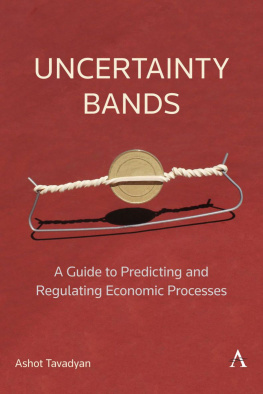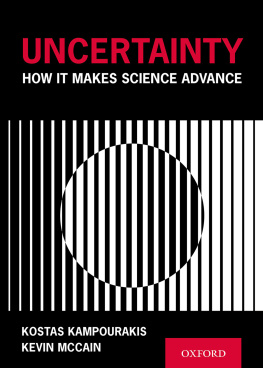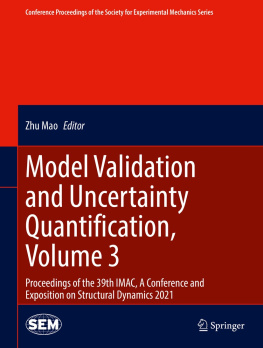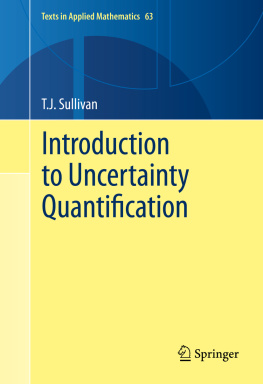Also by John Kay and Mervyn King
The British Tax System
THE BRIDGE STREET PRESS
First published in Great Britain in 2020 by The Bridge Street Press
Copyright John Kay and Mervyn King 2020
The moral right of the authors has been asserted.
All rights reserved.
No part of this publication may be reproduced, stored in a retrieval system, or transmitted, in any form or by any means, without the prior permission in writing of the publisher, nor be otherwise circulated in any form of binding or cover other than that in which it is published and without a similar condition including this condition being imposed on the subsequent purchaser.
Illustration credits: Shutterstock;
WikiArt and Hulton Archive/Getty Images.
A CIP catalogue record for this book
is available from the British Library.
ISBN 978-1-4087-1258-0
The Bridge Street Press
An imprint of
Little, Brown Book Group
Carmelite House
50 Victoria Embankment
London EC4Y 0DZ
An Hachette UK Company
www.hachette.co.uk
www.littlebrown.co.uk
For Mika and Barbara
CONTENTS
Part I
Introduction: The Nature of Uncertainty
Part II
The Lure of Probabilities
Part III
Making Sense of Uncertainty
Part IV
Economics and Uncertainty
Part V
Living with Uncertainty
I prefer true but imperfect knowledge, even if it leaves much indetermined and unpredictable, to a pretence of exact knowledge that is likely to be false.
FRIEDRICH VON HAYEK ,
Nobel Prize lecture, 1974
A s the final words of this book were written in the summer of 2019 its two authors celebrated, if that is the word, fifty years of life as professional economists. Much has happened to economies and the study of economics over that period. The first Nobel Prize in Economic Sciences was awarded in 1969, and the announcement of the latest winner has become a regular part of the economists calendar. In public, private and academic sectors, the number of economists has expanded greatly. We have had the good fortune to work with colleagues in all three domains. As we describe in this book, progress is made collectively and through communication with others. Our biggest debt of gratitude must, therefore, be to our professional colleagues, too numerous to mention, from around the world with whom we have interacted for half a century. Their influence on us, both conscious and unconscious, is immense.
Our immediate thanks are to those with whom we have discussed the ideas in this book during its writing: Rachel Barkow, Tim Besley, Amar Bhid, David Bodanis, Alan Budd, Paul Collier, Samuel Issacharoff, Peter Kellner, Richard Pildes, Stuart Proffitt, Adam Ridley, Paul Seabright, Robert Skidelsky, Ed Smith, David Tuckett, and colleagues at NYU Stern School of Business and NYU Law School, as well as at the London School of Economics and the Bank of England. Some of the ideas were presented over several years to seminar participants at a number of places including All Souls College, Oxford, the Norwegian School of Economics in Bergen, NYU Law School and Yale Law School.
Others have made this venture feasible. Our personal assistants, Rachel Lawrence in England and Gail Thomas in New York, organised our lives to make it possible to work on the book. Andrew Wylie proved once again what an energetic and supportive literary agent he is. And our publishers Tim Whiting and Zoe Gullen at The Bridge Street Press, and Drake McFeely at W.W. Norton provided encouragement and advice at every stage.
Doris Nikolic and Matthew Ford not only provided excellent research assistance but persisted in asking difficult questions to which we felt impelled to try to provide answers. Their insights have greatly enriched the book.
Finally, our thanks must go to our long-suffering spouses, Mika Oldham and Barbara Melander-King, who not only gave us excellent comments and editorial suggestions but patiently allowed us the time to complete the manuscript.
F orty years ago, we wrote a well-received book, The British Tax System , describing the failures intellectual and practical of the tax system. We were neither academic scribblers inventing a tax system from scratch nor tax accountants engrossed in excruciating detail. Instead, as young academics we set out to look carefully at how the tax system actually worked in practice and then to design improvements based on a small number of carefully thought through principles. Forty years later, we discovered that we had independently come to the view that economics as a whole faced a similar challenge and was in need of a fresh look. So we decided to collaborate again. This book is the result.
The British Tax System sold well and went into several editions. But our careers then went in different directions. John became the Director of the Institute for Fiscal Studies, started a successful consulting company focusing on business economics, and was the first director of the Sad Business School at Oxford University and for twenty years a columnist for the Financial Times . Mervyn became an academic in various universities in the UK and US before joining the Bank of England as Chief Economist and later Governor from 2003 to 2013.
During those forty years we saw at first hand both the power of economics as a way of approaching practical problems, and also its limitations. As students and academics we pursued the traditional approach of trying to understand economic behaviour through the assumption that households, businesses, and indeed governments take actions in order to optimise outcomes. We learnt to approach economic problems by asking what rational individuals were maximising. Businesses were maximising shareholder value, policy-makers were trying to maximise social welfare, and households were maximising their happiness or utility. And if businesses were not maximising shareholder value, we inferred that they must be maximising something else their growth, or the remuneration of their senior executives.
The limits on their ability to optimise were represented by constraints: the relationship between inputs and outputs in the case of businesses, the feasibility of different policies in the case of governments, and budget constraints in the case of households. This optimising description of behaviour was well suited to the growing use of mathematical techniques in the social sciences. If the problems facing businesses, governments and families could be expressed in terms of well-defined models, then behaviour could be predicted by evaluating the optimal solution to those problems.
Although much can be learnt by thinking in this way, our own practical experience was that none of these economic actors were trying to maximise anything at all. This was not because they were stupid, although sometimes they were, nor because they were irrational, although sometimes they were. It was because an injunction to maximise shareholder value, or social welfare, or household utility, is not a coherent guide to action. Business people, policy-makers and families could not even imagine having the information needed to determine the actions that would maximise shareholder value, social welfare or household utility. Or to know whether they had succeeded in doing so after the event. Honest and capable executives and politicians, of which there are many, try instead to make incremental decisions which they think will improve their business, or make the world a better place. And happy households are places where family members work together to ensure that tomorrow is at least as good as today.








